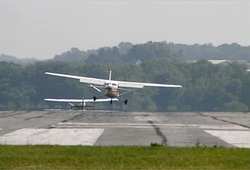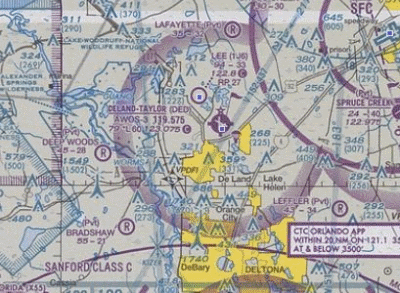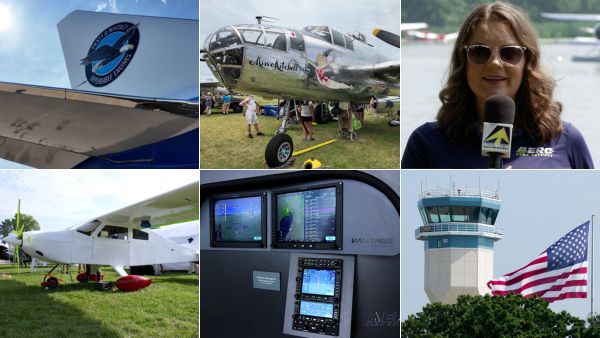Sat, Sep 21, 2024
New Trend Out to Cause Safety and Privacy Concerns
The trend of private companies monitoring landings using open-source data and optical capture seems to be on an uncontrolled rise. Scheduled flights? Check. Impromptu hops? Check. No transponder? No problem. They’re poised to track your every move -- because who wouldn’t want to pay an extra fee just to stop flying?

Landing fees aren’t a new feature at major commercial airports, but the same story doesn’t apply to general aviation (GA) fields. Many GA airports have relied on fuel flowage, tie-down, and ramp fees as their primary means of generating income. This was largely due to the perception that landing fees would deter pilots from using smaller airports.
However, an alarming amount of GA fields have started implementing landing fees recently. The latest among these was Florida’s DeLand Municipal Airport, which would have become effective on October 1, 2024, and required a $3 payment per 1,000 lbs of the aircraft’s max landing weight -- if it hadn't been voted down at the last minute. DeLand officials claimed that this was to prevent unsafe levels of traffic pattern saturation as nearby airports introduced similar fees.
“A preliminary review of available budgets suggests the airports are already operating at minimal expense to local taxpayers and receive federal grants that cover 90 percent of the cost for various projects,” one aviation organization opined. “Yet they are rushing to finalize local approvals required to implement landing fees…”

The implication of landing fees sets a disturbing precedent that penalizes the very act of flying. Especially for new pilots, being able to land at airports other than home base is an essential part of skill mastery. There’s also the fact that setting automatic landing fees is an unnecessary invasion of privacy and a safety hazard for GA pilots.
The EAA Government Advocacy staff recently released a statement on this issue, stating: “We have no problem with funding the infrastructure we use, but not in the form of à la carte fees that disincentivize the use of certain parts of the infrastructure and could affect safety as well."
The GA community plays a crucial role in advocating against landing fees, ensuring that our skies remain as limitless and unburdened as possible.
More News
Also: New Lakeland Fly-in!, Gleim's DPE, MOSAIC! Nearly three-quarters of a century in the making, EAA is excited about the future… especially with the potential of a MOSAIC>[...]
Estimated (EST) -When used in NOTAMs “EST” is a contraction that is used by the issuing authority only when the condition is expected to return to service prior to the >[...]
Aero Linx: Regional Airline Association (RAA) Regional airlines provide critical links connecting communities throughout North America to the national and international air transpo>[...]
The Airplane Broke Up In Flight And Descended To The Ground. The Debris Path Extended For About 1,435 Ft. Analysis: The pilot, who was the owner and builder of the experimental, am>[...]
From 2015 (YouTube version): History Comes Alive Thanks to A Magnificent CAF Effort The story of the Douglas C-47 named, “That’s all Brother,” is fascinating from>[...]
 Airborne 07.21.25: Nighthawk!, Hartzell Expands, Deltahawk 350HP!
Airborne 07.21.25: Nighthawk!, Hartzell Expands, Deltahawk 350HP! ANN's Daily Aero-Term (07.27.25): Estimated (EST)
ANN's Daily Aero-Term (07.27.25): Estimated (EST) ANN's Daily Aero-Linx (07.27.25)
ANN's Daily Aero-Linx (07.27.25) NTSB Final Report: Luce Buttercup
NTSB Final Report: Luce Buttercup Classic Aero-TV: 'That's All Brother'-Restoring a True Piece of Military History
Classic Aero-TV: 'That's All Brother'-Restoring a True Piece of Military History




